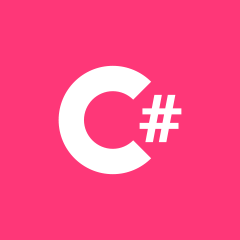在linq中的两个列表之间建立到实体where子句的链接
我还很陌生,Linq而且EF对于如何将Linq中的两个列表链接到实体,我深感困惑。
我正在使用数据库优先,并且我有两个表:
Person与柱Id
和
Ability与列Id,PersonId并Value
因此,Personclass具有一个ICollection<Ability>,称为AllAbilities。
在某些View的ViewModel中,我返回了一个int列表,该列表表示用户为所输入的文本框值Ability.Value(称为)AbilitiesInput。我的需求很简单,在Controller中,我必须调用一个查询,该查询将执行以下操作:
GetAll(person =>
for(i = 0; i < AbilitiesCount; i++) { person.AllAbilities[i] > AbilitiesInput[i] }
)
凡GetAll方法看起来像在我的通用回购:
public virtual async Task<List<TEntity>> GetAll(
Expression<Func<TEntity, bool>> wherePredicate = null
{ ... }
要恢复,我只需要一个布尔值就可以检查每个值是否都AllAbilities[i]高于AbilitiesInput[i],但是我尝试过的任何方法都没有起作用。
我尝试更改AbilitiesInput为List<KeyValuePair>或,List<Tuple>但出现错误说No mapping exists,尝试使用A Select创建一个新对象,也尝试使用IndexOf或FindIndex获取没有foreach的索引...
如果有人能解释我如何实现这一简单目标,我将非常高兴。
非常感谢。
 桃花长相依
桃花长相依3回答
-

繁花不似锦
我是很新,Linq和EF您很不走运,因为“简单的事情”在LINQ to Objects中相对容易,但是在LINQ to Entities中却相当困难(几乎不可能)。为了以某种方式解决它,您需要手动构建LINQ to Entitiescompatible Expression。首先,您需要一些帮助程序来构建表达谓词。PredicateBuilder是一个流行的选择,但它不会产生EF兼容表情和要求LinqKit,并AsExpandable在仓库里。因此,我使用以下类似的辅助方法,但会产生最终的兼容表达式:public static class PredicateUtils{ sealed class Predicate<T> { public static readonly Expression<Func<T, bool>> True = item => true; public static readonly Expression<Func<T, bool>> False = item => false; } public static Expression<Func<T, bool>> Null<T>() { return null; } public static Expression<Func<T, bool>> True<T>() { return Predicate<T>.True; } public static Expression<Func<T, bool>> False<T>() { return Predicate<T>.False; } public static Expression<Func<T, bool>> And<T>(this Expression<Func<T, bool>> left, Expression<Func<T, bool>> right) { if (Equals(left, right)) return left; if (left == null || Equals(left, True<T>())) return right; if (right == null || Equals(right, True<T>())) return left; if (Equals(left, False<T>()) || Equals(right, False<T>())) return False<T>(); var body = Expression.AndAlso(left.Body, right.Body.Replace(right.Parameters[0], left.Parameters[0])); return Expression.Lambda<Func<T, bool>>(body, left.Parameters); } public static Expression<Func<T, bool>> Or<T>(this Expression<Func<T, bool>> left, Expression<Func<T, bool>> right) { if (Equals(left, right)) return left; if (left == null || Equals(left, False<T>())) return right; if (right == null || Equals(right, False<T>())) return left; if (Equals(left, True<T>()) || Equals(right, True<T>())) return True<T>(); var body = Expression.OrElse(left.Body, right.Body.Replace(right.Parameters[0], left.Parameters[0])); return Expression.Lambda<Func<T, bool>>(body, left.Parameters); } static Expression Replace(this Expression expression, Expression source, Expression target) { return new ExpressionReplacer { Source = source, Target = target }.Visit(expression); } class ExpressionReplacer : ExpressionVisitor { public Expression Source; public Expression Target; public override Expression Visit(Expression node) { return node == Source ? Target : base.Visit(node); } }}其次,在控制器中为这样的单个条件定义一个辅助方法static Expression<Func<Person, bool>> AbilityFilter(int index, int value){ return p => p.AllAbilities.OrderBy(a => a.Id).Skip(index).Take(1).Any(a => a.Value > value);}最后,构建过滤器并将其传递给GetAll方法:var filter = PredicateUtils.Null<Person>();for (int i = 0; i < AbilitiesInput.Count; i++) filter = filter.And(AbilityFilter(i, AbilitiesInput[i]));GetAll(filter);使用的技术绝对不是新手,但我认为没有简单的方法可以解决该特定问题。 -

蝴蝶刀刀
不知道我是否正确,但是下面的代码可能有助于获得正确的解决方案。使用(x,i)将枚举整个集合并获得一个索引,以便您可以比较两个集合。using System;using System.Collections.Generic;using System.ComponentModel;using System.Data;using System.Drawing;using System.Linq;using System.Text;using System.Windows.Forms;namespace WindowsFormsApplication1{ public partial class Form1 : Form { List<TextBox> AbilitiesInput = null; public Form1() { InitializeComponent(); AbilitiesInput = new List<TextBox>() { textBox1, textBox2, textBox3, textBox4 }; Person person = new Person(); List<Ability> results = person.AllAbilities.Where((x, i) => x.Value > int.Parse(AbilitiesInput[i].Text)).ToList(); } } public class Person { public int Id { get; set; } public List<Ability> AllAbilities { get; set; } public Person() { AllAbilities = new List<Ability>(); } } public class Ability { public int Id { get; set;} public int PersonId { get; set; } public int Value { get; set; } }} -

侃侃尔雅
非常感谢您的答复,但是为了在查询的where子句中使用它,我需要一个布尔值而不是List<Ability> results。我如何将其更改为布尔值?我尝试用替换Where,All但All似乎无法处理(x, i)。
 随时随地看视频慕课网APP
随时随地看视频慕课网APP
相关分类



 C#
C#